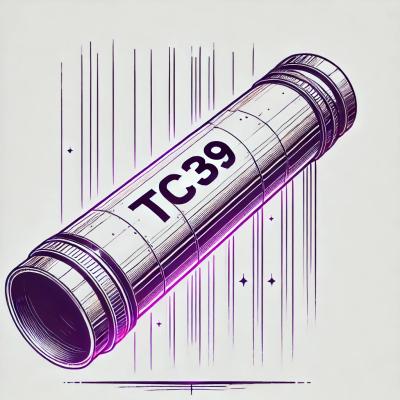
Security News
NVD Quietly Sweeps 100K+ CVEs Into a “Deferred” Black Hole
NVD now marks all pre-2018 CVEs as "Deferred," signaling it will no longer enrich older vulnerabilities, further eroding trust in its data.
A. Pitchford, C. Granade, A. Grimsmo, N. Shammah, S. Ahmed, N. Lambert, E. Giguère, B. Li, J. Lishman, S. Cross, A. Galicia, P. Menczel, P. Hopf, P. D. Nation, and J. R. Johansson
QuTiP is open-source software for simulating the dynamics of closed and open quantum systems. It uses the excellent Numpy, Scipy, and Cython packages as numerical backends, and graphical output is provided by Matplotlib. QuTiP aims to provide user-friendly and efficient numerical simulations of a wide variety of quantum mechanical problems, including those with Hamiltonians and/or collapse operators with arbitrary time-dependence, commonly found in a wide range of physics applications. QuTiP is freely available for use and/or modification, and it can be used on all Unix-based platforms and on Windows. Being free of any licensing fees, QuTiP is ideal for exploring quantum mechanics in research as well as in the classroom.
We are proud to be affiliated with Unitary Fund and numFOCUS.
We are grateful for Nori's lab at RIKEN and Blais' lab at the Institut Quantique for providing developer positions to work on QuTiP.
We also thank Google for supporting us by financing GSoC students to work on the QuTiP as well as other supporting organizations that have been supporting QuTiP over the years.
QuTiP is available on both pip and conda (the latter in the conda-forge channel).
You can install QuTiP from pip by doing
pip install qutip
to get the minimal installation.
You can instead use the target qutip[full] to install QuTiP with all its optional dependencies.
For more details, including instructions on how to build from source, see the detailed installation guide in the documentation.
All back releases are also available for download in the releases section of this repository, where you can also find per-version changelogs. For the most complete set of release notes and changelogs for historic versions, see the changelog section in the documentation.
The pre-release of QuTiP 5.0 is available on PyPI and can be installed using pip:
pip install --pre qutip
This version breaks compatibility with QuTiP 4.7 in many small ways. Please see the changelog for a list of changes, new features and deprecations. This version should be fully working. If you find any bugs, confusing documentation or missing features, please create a GitHub issue.
The documentation for the latest stable release and the master branch is available for reading on Read The Docs.
The documentation for official releases, in HTML and PDF formats, can be found in the documentation section of the QuTiP website.
The latest development documentation is available in this repository in the doc folder.
A selection of demonstration notebooks is available, which demonstrate some of the many features of QuTiP. These are stored in the qutip/qutip-tutorials repository here on GitHub.
You are most welcome to contribute to QuTiP development by forking this repository and sending pull requests, or filing bug reports at the issues page. You can also help out with users' questions, or discuss proposed changes in the QuTiP discussion group. All code contributions are acknowledged in the contributors section in the documentation.
For more information, including technical advice, please see the "contributing to QuTiP development" section of the documentation.
If you use QuTiP in your research, please cite the original QuTiP papers that are available here.
FAQs
QuTiP: The Quantum Toolbox in Python
We found that qutip demonstrated a healthy version release cadence and project activity because the last version was released less than a year ago. It has 6 open source maintainers collaborating on the project.
Did you know?

Socket for GitHub automatically highlights issues in each pull request and monitors the health of all your open source dependencies. Discover the contents of your packages and block harmful activity before you install or update your dependencies.

Security News
NVD now marks all pre-2018 CVEs as "Deferred," signaling it will no longer enrich older vulnerabilities, further eroding trust in its data.

Research
Security News
Lazarus-linked threat actors expand their npm malware campaign with new RAT loaders, hex obfuscation, and over 5,600 downloads across 11 packages.

Security News
Safari 18.4 adds support for Iterator Helpers and two other TC39 JavaScript features, bringing full cross-browser coverage to key parts of the ECMAScript spec.